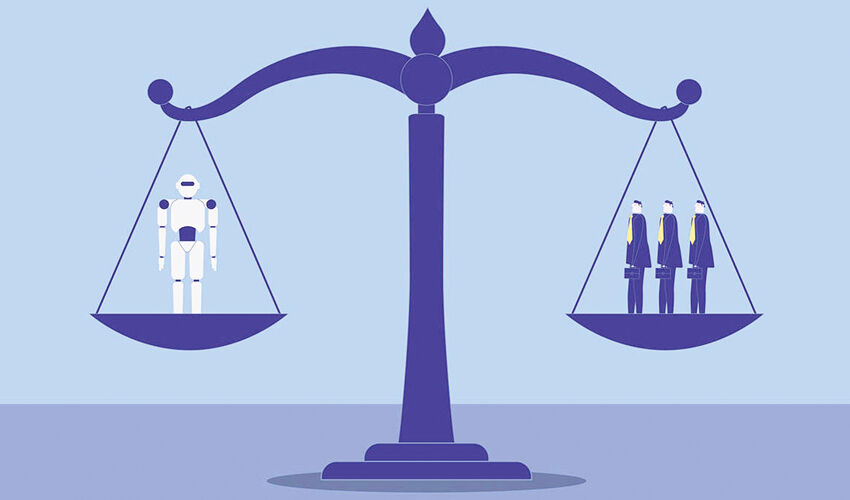
Don’t count on it.
Yes, in recent years, extremely optimistic assessments of AI’s potential impact on economic growth have pushed asset markets upward. This is especially true of the euphoria in stock markets, where the rally continues despite the political paralysis in France, the suspension of funding for government agencies and the open attack on central bank independence in the US, and the exodus of highly skilled personnel from the UK.
I’ve long argued that AI will eventually solve the sluggish economic growth in developed economies, but I’ve also warned that there are several likely barriers that could slow the pace of transformation. There are many material, legal, economic and social factors to consider, including power supply; intellectual property rights; a shortage of skilled AI workers; and the need for a comprehensive system of rules for communication and information sharing for chatbots, including some sort of pricing mechanism.
AI companies are investing huge sums in the race for market dominance (if the authorities allow such dominance), and they are clearly willing to lose money in exchange for users and information. But in time (and probably not in the not so distant future), these companies will have to find sources of income, most likely through advertising, as social networking companies have done before.
The administration of U.S. President Donald Trump has turned on the “full throttle” signal for AI development, but there are confusing questions surrounding the programming of moral judgments in AI models. They are only of interest to a small group of developers right now, but will be addressed by the US Congress and courts, as well as authorities in other countries. However, the biggest backlash can be expected from the hundreds of millions of office workers who will lose their jobs. They will become a new argument in the political struggle, just as industrial workers are today and farm workers were in the 1960s and 1970s.
Anyone who works at a computer will be threatened by automation. The idea that a handful of firms will be able to replace a significant portion of the labor force without causing massive political upheaval is just a fantasy. Unless there is a sharp reversal to authoritarianism, unrest is guaranteed. All of this will provide rich fodder for Mamdani’s zohrans around the world (Mamdani, a 33-year-old socialist, has emerged as a leading contender for mayor of New York City in the upcoming November election), because AI is primarily destroying the jobs of young professionals.
There’s another inconvenient truth: many advanced AI programs are being applied to the military, which could trigger a massive arms race and even lead to new wars fought by drone armies and other AI-based weapons systems. Geopolitical fragmentation and conflict are detrimental to long-term economic growth, and they can both reduce tax revenues and increase them. AI can also strengthen small states and terrorist groups, effectively giving them one-click access to top physicists and biologists.
Finally, although Trump, a staunch climate change denier, is back in the White House, that doesn’t mean the threats posed by global warming have disappeared. The costs of unrestrained climate change will increase dramatically in the coming decades – unless, of course, our AI overlords manage to solve the problem (although they may conclude that the solution is to reduce the human population).
The idea that after a long and painful transition period, a universal artificial intelligence (AGI) will emerge that will solve all the problems of rich countries is a strong exaggeration. Even if AGI dramatically boosts economic growth, it will undoubtedly lead to a dramatic increase in the share of capital in output, i.e., a decline in the share of labor. The stock market boom is precisely because companies expect labor costs to fall. And so the expectation of high profits embedded in the rapid rise in stock prices cannot be expected to match the overall one-to-one growth.
And here we return to the topic of government debt. There is no reason to believe that growth at the expense of AI will lead to an equivalent increase in the authorities’ tax revenues, although in the past this assumption would have looked reasonable. The fact is that capital is much harder to tax than labor. Part of the reason is that it is more concentrated and politically powerful, and part of the reason is that it can move freely across borders.
Raising tariff walls may prevent capital flight, but any such strategy ends up being suicidal. So, yes, an AI transformation is coming, and it has already contributed to a new arms race between the US and China. But it is foolhardy to think that developed countries can rely on artificial intelligence to solve their fiscal problems that human politicians have failed to solve.
Kenneth Rogoff,
former chief economist at the International Monetary Fund,
now professor of economics and public policy at Harvard University.
at Harvard University, winner of the Deutsche Bank Prize for Financial Economics
in 2011, co-author (with Carmen Reinhart) of the book.
“This Time It Will Be Different: Eight Centuries of Financial Folly”
(Princeton University Press, 2011) and author of “Our Dollar, Your Problem”
(Yale University Press, 2025).
© Project Syndicate, 2025.
www.project-syndicate.org






